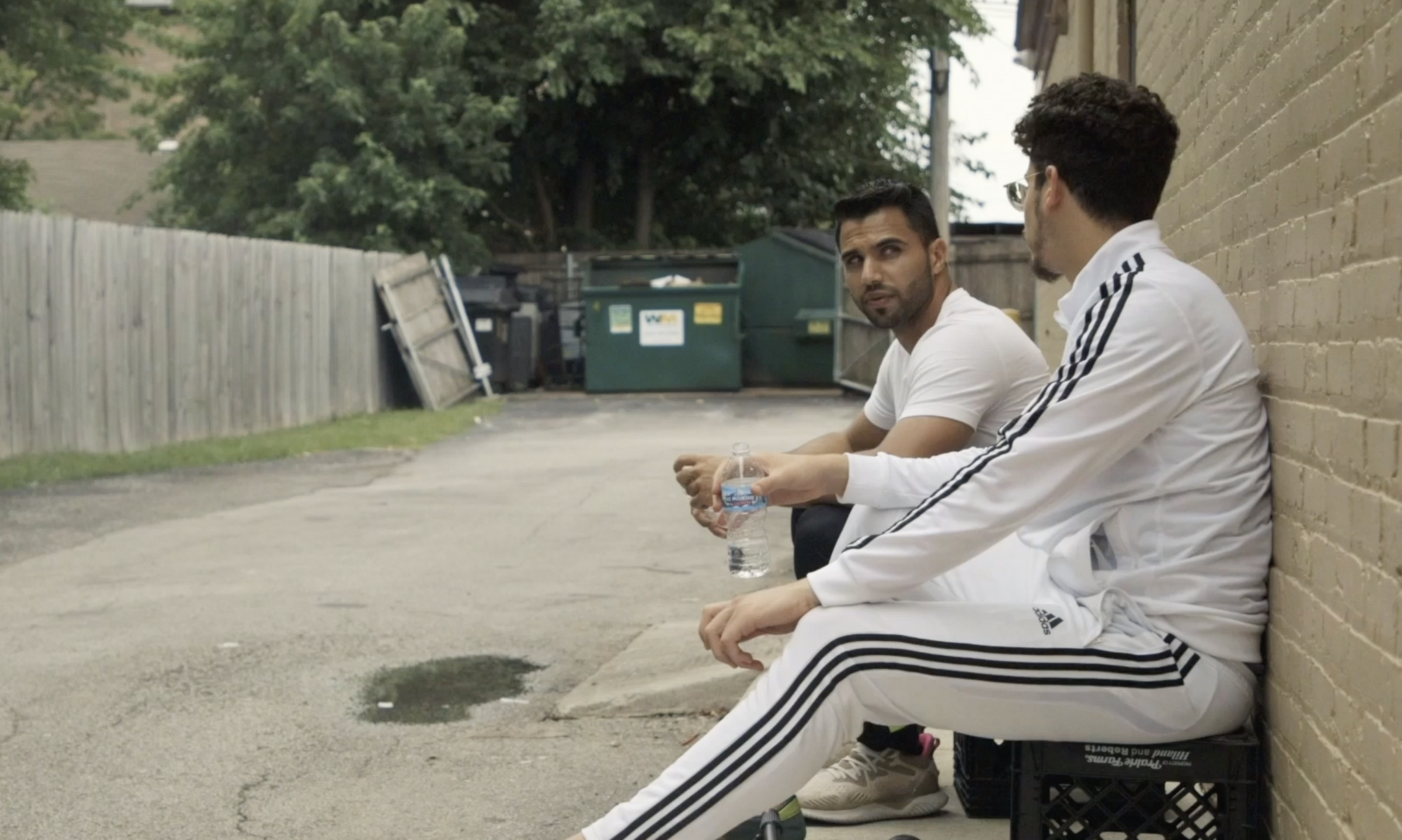Ever since grassroots movements like #OscarsSoWhite and #BlackLivesMatter gained mainstream traction, BIPOC people have become better represented—a bit—on both the big and small screen. But though these days you can find movies and shows about Black, Latinx, and AAPI characters in your Netflix queue, fictional shows about Indigenous Americans, Arab, and/or Muslim Americans are still severely underrepresented.
Enter writer and director Sohib Boundaoui and his web series Arabica.
Arabica takes place in the southwestern Chicago suburb of Bridgeview, in an insular Arab Muslim enclave nicknamed Little Palestine. In the show, Boundaoui plays himself, a filmmaker trying to get his neighbors to talk about the FBI for a documentary.
In many ways Arabica is a natural sequel to the documentary The Feeling of Being Watched, which was created and directed by Boundaoui’s sister, journalist Assia Boundaoui, and which premiered at the Tribeca Film Festival in 2018. The documentary followed her real-life attempt to uncover the covert FBI operation dubbed Operation Vulgar Betrayal. Through Freedom of Information Act (FOIA) requests and a lengthy court battle, Assia unearthed a wide-ranging, decades-long FBI probe of the residents of Little Palestine, which resulted in over 30,000 pages of records on the community’s residents. The probe resulted in only one charge: Abu Ahmed (known to the press as Muhammad Salah) was the first American to be designated a terrorist for allegedly funding Hamas, a charge of which he was later acquitted. The FBI is still slowly releasing its records to Assia Boundaoui.
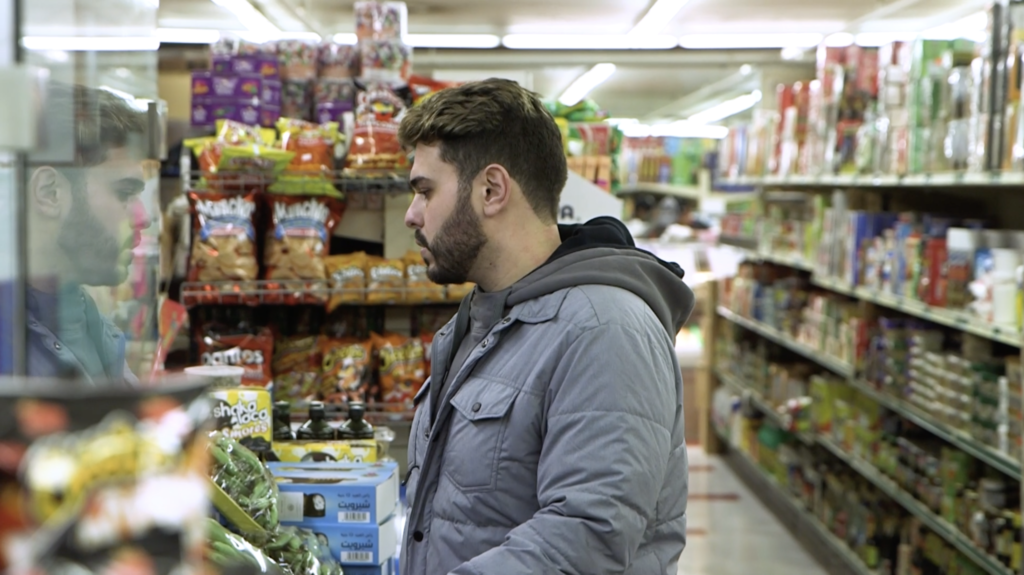
Where The Feeling of Being Watched takes a journalistic approach, Arabica employs artistic license to tell the stories of a rotating cast of members, all of whom use their real names and many of whom are non-actors involved in the community. Arabica touches on subjects like race, gender, religion, and creative ambition.
Though each episode follows a different protagonist, there is one character that is a constant in each: a white van that is widely believed by the community to belong to the FBI, a callback to the Boundaoui’s family involvement in exposing Operation Vulgar Betrayal.
The following is an excerpt from a longer conversation with Sohib and Assia Boundaoui, along with actors and producers, about the making of the film, the most recent Israeli-Palestinian crisis, and what it’s like to live as a first-generation Arab/Muslim American in Little Palestine. You can hear the full interview on South Side Weekly’s Soundcloud at https://soundcloud.com/south-side-weekly-radio. Arabica is online at arabicaseries.com.
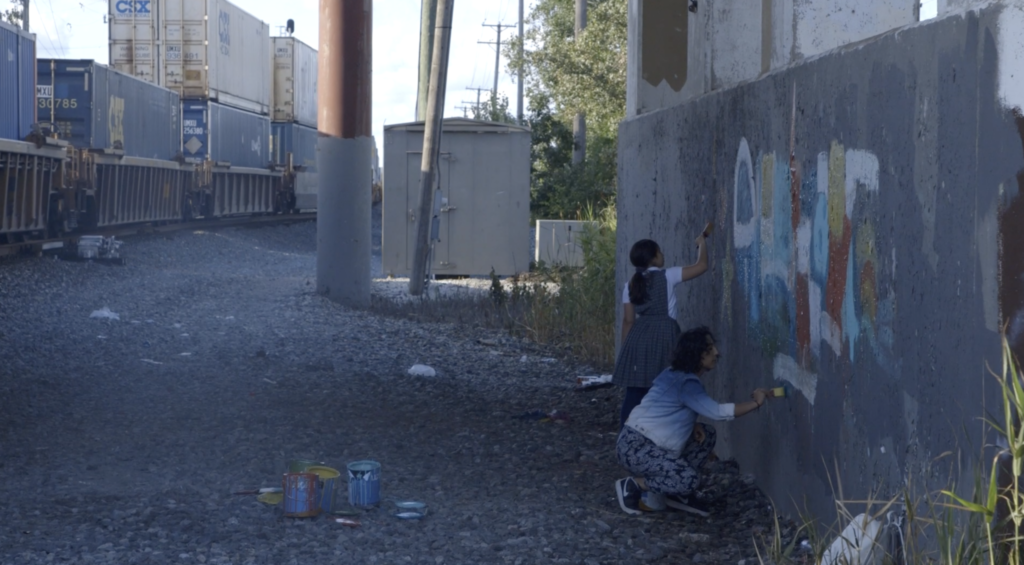
Sohib Boundaoui (writer/director): I feel like this whole project was a long time coming for the community. Everybody felt so strongly that their perspective is unique and making this it was hard to focus on one specific subject; I feel like it was the right thing to try to get as many voices in as possible, because the nuances of our community are so diverse. That there is no one Little Palestine, or one Arab, or one Muslim story. I was born and raised in Little Palestine. Me and Baha (producer) grew up [together] and we all went to the same Muslim private Islamic school. Assia, my older sister, was doing The Feeling of Being Watched for five years, and she’s been my mentor in this process. I feel like it’s been a gradual experience seeing how our community fits into the arts because it wasn’t the first instinct of the community. The community is STEM-based—you know, doctor, lawyer.
I mentioned in the series that the instinct is to survive, to get acquainted, and I feel like now we’re in this part as the first generation that can really use the resources around us to tell our story. It’s been a process of learning what the arts can do for our community, and seeking that investment in the community in the arts. I’m just a conduit. I’m just shining a light on the amazing people that are around us. And now we’re in such a formal setting. It’s been such a grassroots DIY process that it’s great to be speaking about it in retrospect, seeing what can come about in the future.
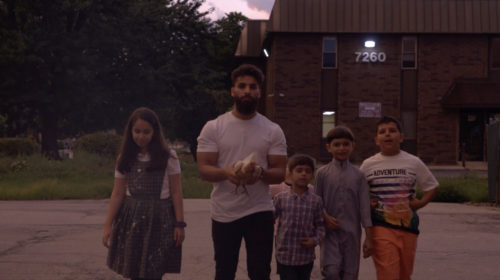
Assia Boundaoui (executive producer): I’m really honored to play a small role in this project. And, I just really want to uplift what Sohib just said: so much of the film really is showcasing a lot of the talent that we have in our community. We have talented folks like Mona (Aburmishan) who are in entertainment and have been doing this for a while, and then we have the folks at the barbershop who actually work there and are not so much acting. So I love this series, because it’s really a mix of all of that and showcases so much of the talent and the personality of folks in the community.
Was all the music featured in Arabica done by local artists?
SB: My cousin—shout out to UDMG, the co-owner of a music group—a lot of music was from him, from some beats to actual tracks, also big brother Kayem and my teacher Ronnie Malley and also my friend Bilal Shouly. Between them four, who are all Arab-American musicians, they supplied the whole soundtrack for the show. And Amin Elsaeed. He took one of his verses on another song and he put it over a UDMG track and it fit beautifully.
Because of FBI surveillance, have you felt that paranoia of someone always watching you? Always observing you?
SB: It’s not just the FBI; paranoia would be a natural thing in a community that is always thinking about what other people are thinking about them, you know what I mean? This is a community that struggles with but also perpetuates the feeling of being watched and judged, so a part of it is like people are looking at you. So it’s two interesting levels of paranoia, where you’re navigating state surveillance, but also your community’s expectations or their image of you. I feel like everyone in the series kind of had this looking-over-your-shoulder type feeling like people are watching or something is watching.
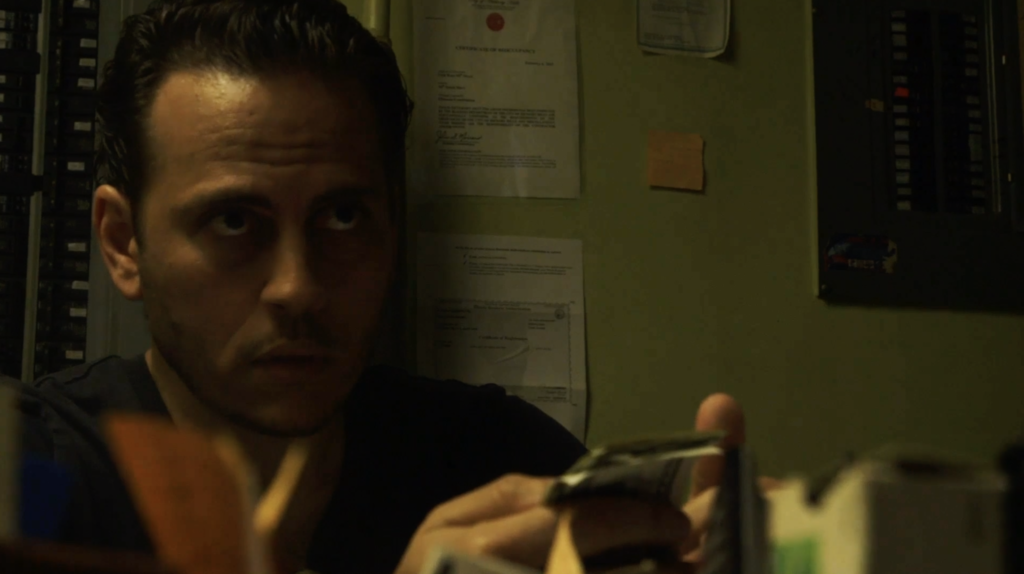
Baha Amra (producer): One example of that in the series is actually, if you remember when Arti walks into the barbershop and all the guys are just staring at her. That was one one example where the community’s watching some community member. One of the scenes that didn’t make the cut was a bunch of—we call them khaltos, which is like aunties—where they would just peek out of the blinds and then look and keep a watch on the neighborhood just to see what’s going on.
Amin Elsaeed (actor): I think that at least within the Muslim and Arab community, whether you know you’re being actively watched or not, you always think that you are, and so that really is what kind of guides a lot of people’s actions. And it’s like, “Man, what are they going to think of this? What if someone sees this? What are they going to say about me here?” Baha brought up the scene of Arti just walking into the barbershop. Within the Arab Muslim community, a woman walking into a barbershop like that? That’s a big deal. A lot of women won’t just walk into a barbershop by themselves that’s full of a bunch of guys. Not that there’s anything wrong with that, but just the cultural expectations and that feeling of constantly being judged. That’s something that’s so ingrained in our community that I think it’s going to take some generations for us to kind of let that free from our mindset.
Were the events in the most recent Palestinian-Israeli crisis felt in Little Palestine?
BA: Yeah, it was definitely felt. I’m Palestinian and I’ve never even been to Palestine. But you couldn’t even go from person to person without talking about what’s happening between Palestine and Israel. I mean, it’s an injustice that’s happening right before our eyes and obviously, there are now a lot of eyes on it, and a lot of people are saying stuff about it, but the the fact that the global governments are not doing anything about it is what’s sad and what needs to change, and they actually have to have something be done about it because, what’s going on? It’s just straight up genocide.
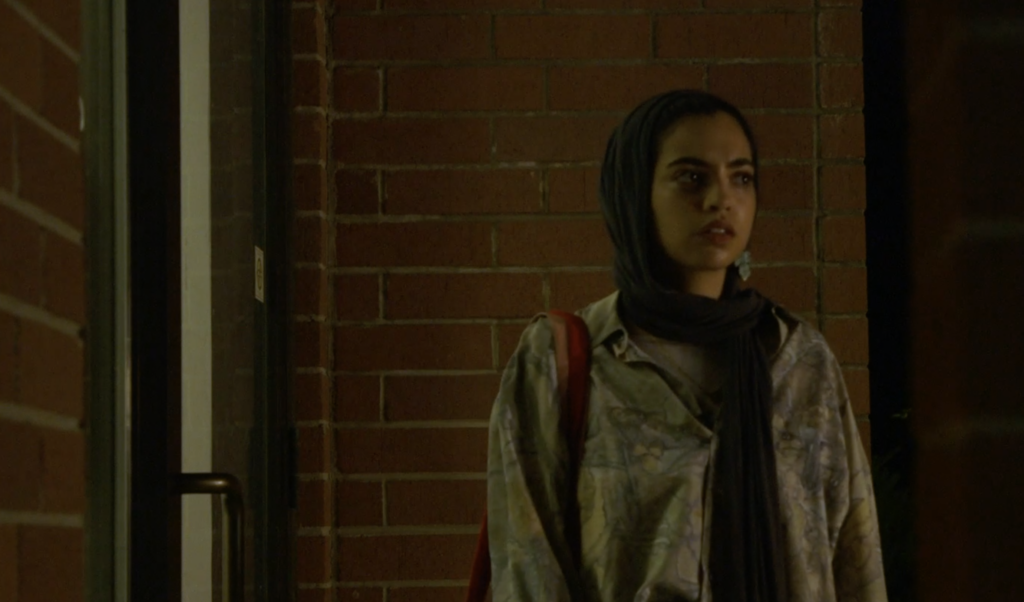
Mona Aburmishan (actor): Many of us have lost family members because of what’s going on. We’re holding our breath and we’ve been doing that for so long. My camera guy—he has a family in Gaza. He lost a cousin. I did a show with another comedian in Dubai, and I’m like, “Dude? How’s it going over there? I’m surprised you got out.” And losing a whole neighborhood, a whole block of building, you’re losing your social capital and it affects every community. But the diaspora has been for so long and so strong, we get that punch, but we’re all still vacillating between mourning and not.
I don’t know if I could have believed in myself enough as a Palestinian to execute what [Sohib] executed in this project. You’re seeing it through some of the healing. A lot of Palestinians often can’t see beyond what could be possible because we’re always in a state of occupation. Everyone else goes and learns about history about “that one time.” In South Africa I talk about “that one time,” but we’re in that one time, so sometimes it really can affect your mental wellness knowing half of you is under duress all the time and getting the calls about it.
Cai Thomas (executive producer): The release ultimately got pushed back multiple times and one of the reasons was because [Sohib] didn’t want to release it while everything was going on. He’s thoughtful and caring. It’s like, this is not the time to be putting out a series, everyone [is] in the streets right now, this is where the focus of the community is going to be and there will be a time where the project can come out. But as his friend who knows how hard he worked on this, editing eight episodes, directing eight episodes, writing them—that is a lot.
SB: I feel like I’m working as glue and just bringing in the right people in the right place together at the right time to talk about a certain thing. And that was the goal with the documentary, to inspire a conversation about who we are, because once we understand ourselves, we understand where we fit and how we could grow as a group. I feel like this is just another iteration of that. This is a piece of who we are and this is a piece of what’s possible from production and producing art to understanding ourselves and our role in this context. Our ancestors took us to this place and for me, I think it’s very interesting that, for hundreds of years, my people were in the mountains of Algeria, and now I’m in Chicago, so it’s like, what wisdom have I attained from my ancestors that lived in Algeria that now the context is to put it out in Chicago? I feel like a part of that is giving people a chance to shine.
Amin, I always said, it’s just a matter of time till he becomes famous, because he’s just extremely talented. Mona, it was incredible how we just literally connected and the next time I met her, she was acting on this series. So much of that happened over the community. The first time I met Cai, she’s like, “Chicago, we need to talk.” That was the only thing she said and then we had a long conversation after that. It’s just giving shine to these beautiful souls around us that deserve to be seen. It’s been awesome and I’m looking forward to doing it again and again and on higher and higher levels moving forward, Inshallah. God willing.
Francisco Ramírez Pinedo is a freelance web developer and contributing editor for the Weekly based in South Chicago, covering labor, tech/cybersecurity, politics, immigration, arts, and design. He last wrote about Pullman and South Chicago for Best of the South Side.



